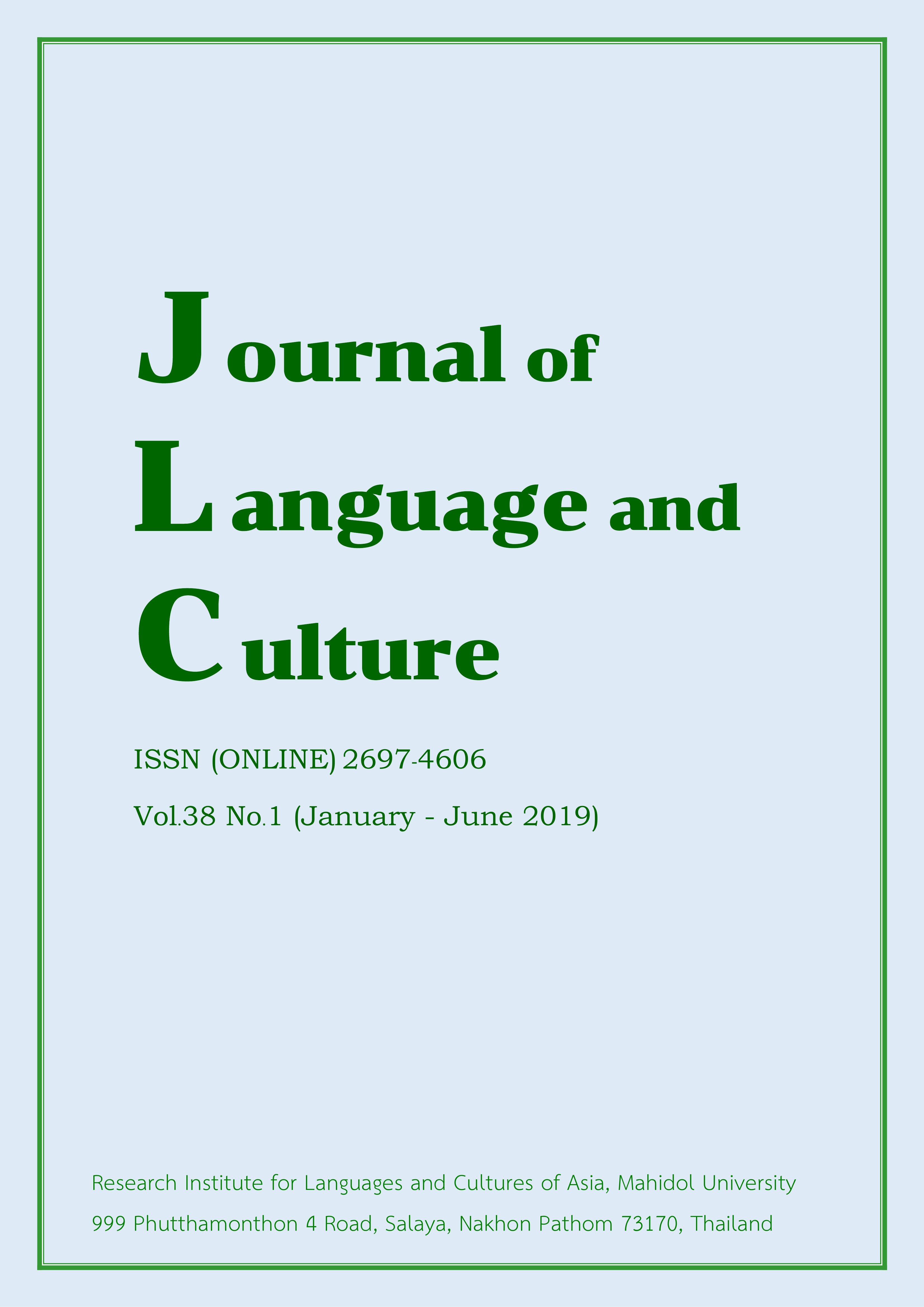Presupposition in the short story ‘/sa.ŋòp ŋōŋ nāj dōŋ ŋūu/’ (Confused Calmness in Snakes’ Wilderness): A critical discourse analysis
Main Article Content
Abstract
This article aims to analyze previously believed ideas, or “presupposition” as a way of judging the choice of language through utterance which reflect the power of the ideology of the users’ discourses in society. This is done through a study of the short story ‘/sa.ŋòp ŋōŋ nāj dōŋ ŋūu/’ (Confused Calmness in Snakes’ Wilderness), which is about the drive for local democracy and emotional state, and includes the theme of courage to overcome fear but where fear still controls the courage. It can be said that the fear of fear apparent through the interface of the word “snake”, is frequently underscored in the text. The analysis method is based on pragmatic principles and critical analysis discourse. The results found that the characters who produce the utterances can be interpreted and construed in several roles and functions as follows: 1) existence (e.g. exist/not exist); 2) prediction or projection; 3) action of doing or practicing; 4) face saving and space occupation; 5) narration and explanation and;
6) suggestion, threat and intimidation. The fruitful presupposition of the thoughts that precedes it leads to the coordination of the relationship between the generated discourses in accordance with mythologies that have been proposed and released, reflecting the way in which the community has been through this short story, is only step-by-step democracies. But the spiritual level was negated by the fear of the characters. The advantages and the implications of the analysis can be summarized as examples of language, presuppositions or ideas that are believed to exist before, discourse and power with the failed society. This is the reason that makes people scared.
Article Details
The articles featured in the Journal of Language and Culture (JLC) constitute academic works representing the viewpoints of the respective author(s). It is crucial to note that these opinions do not necessarily reflect those of the Editorial Board.
All articles published in JLC are released under the Creative Commons Attribution 4.0 International License (CC BY 4.0). This license grants permission for unrestricted use, distribution, and reproduction in any medium, provided proper credit is given to the original author(s) and the source.


